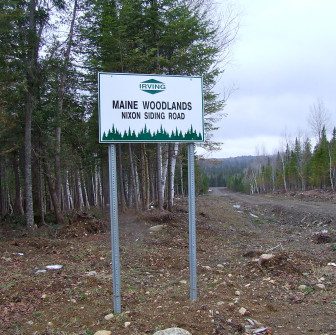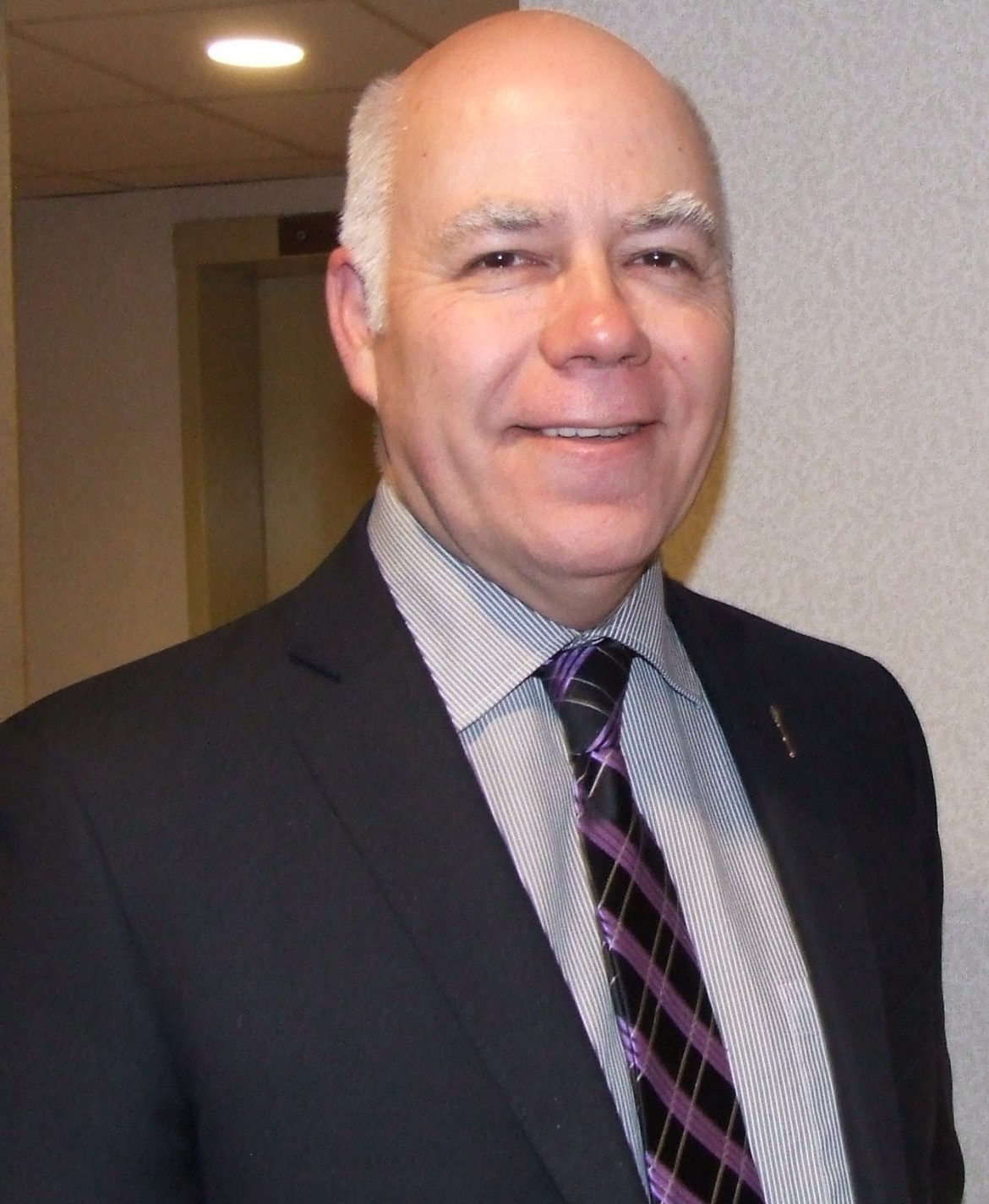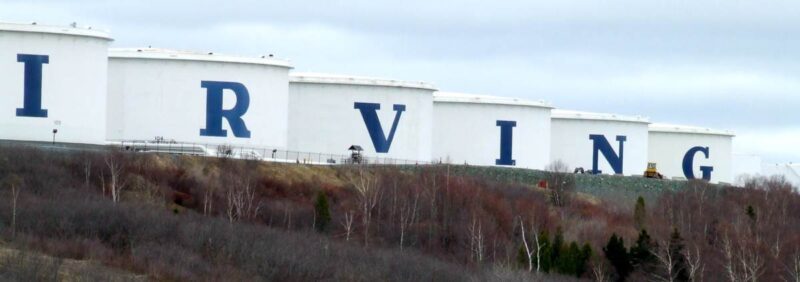Editor’s note: This is the first story in a three-part series investigating the Irving corporate presence in Maine and New Brunswick and its implications for the state’s future.
After four years of debate and $250,000 in lobbying expenses by Canadian corporate giant J.D. Irving, the Maine legislature in June overwhelmingly turned down Irving’s bill to relax environmental laws so it could mine copper and zinc from Bald Mountain in Aroostook County.
At this point many companies would throw in the towel. But statements by pro-mining legislators — and, especially, J.D. Irving’s history — suggest that the Bald Mountain story isn’t over yet.
Irving companies don’t give up easily.
During the past 75 years they have gained a reputation in Canada of relentlessly pursuing financial growth and political power. The consequences, their critics say, can mean damage to the environment.
“Expansion is the thing” was the motto of K.C. Irving, the twentieth-century tycoon who created the family empire.
An investigation by the Maine Center for Public Interest Reporting of the Irving-family domination of its New Brunswick homeland and of its growing economic and political influence in Maine suggests that this is still its motto.
Irving companies have been slowly but steadily expanding in the state for some time.
J.D. Irving first bought Maine timberland in Aroostook in 1946. It now owns 1.25 million acres in Aroostook and Penobscot Counties, making it the state’s largest landowner.
Irving Oil opened its first Maine gas station in Bangor in 1972. Those stores with the big white, red, and blue signs now number 138, from Kennebunk to Caribou.
K.C.’s business philosophy also included sticking to regional expansion and keeping the core corporations family-owned, which means financial information about them isn’t public.
And Irving companies are notorious for exercising lobbying muscle to obtain governmental favors.
Jacques Poitras, author of a book on the Irving family and a Canadian Broadcasting Corporation correspondent in Fredericton, the provincial capital, recommended that Mainers pay special attention to Irving companies’ “influence on political leaders and their frequent use of government subsidies.”
He cited a New Brunswick example from last year: “After 10 years, three different governments and persistent effort,” J.D. Irving “got what they wanted” in larger allocations of public forest lands to harvest for their mills.
Another author, John DeMont, wrote in his 1991 book, “Citizens Irving,” that the family’s goal “is always the same: doing whatever needs to be done to ensure that their companies keep growing.” At the end of his book DeMont accurately predicted that Maine would become a special target for Irving expansion.
Ubiquitous presence
Both Mainers and New Brunswickers tend to use the singular “Irving” to mean all family-owned businesses. But the two major conglomerate corporations, J.D. Irving and Irving Oil, are distinct, although each is primarily owned by one of K.C. Irving’s sons.
James (J.K.) Irving controls J.D. Irving, and Arthur Irving controls Irving Oil. Forbes magazine ranks these octogenarian billionaires as, respectively, Canada’s fourth and seventh richest individuals. Poitras’s book, “Irving vs. Irving,” describes how they and their companies have cooperated in the past, but now don’t always get along.

If you look in the right places, you’ll see that Irving is already ubiquitous in Maine.
J.D. Irving’s central business here is wood and ways to transport it to mills. In addition to its northern woodlands and a new, $30-million sawmill near Ashland, the company owns a large sawmill in Dixfield, in Oxford County, as well as Eastern Maine Railway, which runs from Brownville Junction to the company’s New Brunswick railroads.
In 2011, J.D. Irving leased Maine Northern Railway from the state, at $1 a year for 30 years, shortly after the state paid $20 million to buy it from a company abandoning service on it. The federal government spent $10 million to upgrade the tracks, which run 220 miles from Millinocket north to Frenchville.
And those numerous Sunbury and Midland tractor-trailers on I-95? They belong to J.D. Irving.
A business database search turned up 175 Canadian corporations that Irving family members own, many without the Irving name attached.

Besides supplying its own stations, Irving Oil provides much of the gasoline, diesel, and home-heating oil sold in Maine, regardless of brand, from its 320,000-barrels-per-day refinery in Saint John, the largest in Canada.
How much? “Virtually all of it,” said Eben Rose, a South Portland geologist who tracks tanker traffic into Portland Harbor, where nearly all petroleum products enter the state. Irving Oil said: “One in three New England vehicles uses gasoline supplied by the Irving Oil refinery.”
Intensive lobbying
Irving Oil has built up a huge network in Maine, but J.D. Irving has been the most politically aggressive of the two companies — especially on Bald Mountain mining, but also on forestry issues.
J.D. Irving is “the big gorilla in the state,” said Charles Fitzgerald, a veteran conservationist who helped finance lobbying against the mining bill.
Even the head of the mainstream Natural Resources Council of Maine (NRCM) uses sharp language to describe J.D. Irving. The company appears determined “to bend and change Maine’s laws and rules to its advantage, often at the expense of Maine’s environment,” Lisa Pohlmann told the Bangor Daily News.

Environmental groups, including the NRCM, and the sportsmen’s group Trout Unlimited fear pollution of the waterways surrounding Bald Mountain. Irving said the benefit to Maine would be several hundred jobs in one of the poorest counties.
The Irving companies have their defenders. Maine State Chamber of Commerce president Dana Connors said J.D. Irving and Irving Oil are both good corporate citizens that over decades have shown an “outstanding commitment” to the state, where they have had an “immense impact.”
And Republican Gov. Paul LePage’s administration has supported J.D. Irving on both forestry and mining issues. In 2012, the GOP-controlled legislature passed a law to allow the mining.
But the Department of Environmental Protection was required to submit for legislative approval the rules developed to implement the law. After Democrats gained control of the 2013-2014 legislature, the rules were turned down. Then, after Republicans regained control of the Senate last November, LePage resubmitted the rules.
In this year’s legislative session Irving ramped up its efforts, spending $104,000 on 12 lobbyists. By comparison, the company with the next-largest number of lobbyists, Central Maine Power, spent $58,000 on seven lobbyists.
But many Republicans joined Democrats to defeat this latest mining bill, although its most ardent advocate was a Democrat, Rep. John Martin, of Eagle Lake, whose district includes Bald Mountain, which lies within Irving land.
Martin, however, had come under a cloud after the Maine Center for Public Interest Reporting revealed that Irving Oil had forgiven him a $150,000 debt.
As the debate wound down, in an angry floor speech Martin signaled the fight had not ended. J.D. Irving had told him, he said, “‘We’re not going away.'” In the Senate, mining’s most fervent promoter, Thomas Saviello, a Wilton Republican, said in a speech that he’d continue pushing on the issue.
In a Fredericton interview, David Coon, New Brunswick’s first Green Party legislator, described the mentality of the J.D. Irving co-CEO, who is J. K. Irving’s son: “Jim Irving never gives up.”
Special forestry deal
Another example of J.D. Irving’s political aggressiveness can be seen in a forestry deal it got from the state. Besides the quarter-million dollars in mining-issue lobbying during the past four years, it spent $159,000 in the same period lobbying on forest-related issues.
In 2012, LePage’s Maine Forest Service quietly gave the company (the decision was not revealed until the next year) an exemption from some clear-cutting restrictions and other wood-harvesting regulations and from having its harvests closely monitored.
Clear-cutting is when all trees are cut from an area. Many environmentalists and some foresters believe it should be strictly limited because of harm to soil, wildlife, water and recreation. Irving clear-cuts areas and then uses herbicides to kill unwanted tree species while it plants and grows commercially desirable trees.

The Irving exemption was given under an “alternative to prescriptive regulation” program called Outcome Based Forestry, designed for experimental tracts where freedom for the wood-harvester can be “tested,” according to state forestry law.
But there was no test section — J.D. Irving got exempted on its entire 1.25 million acres.
A forest-service committee oversees Irving’s wood harvesting, but a Nature Conservancy representative quit in protest when his perspective in a report on how the program was working wasn’t included.
It’s impossible for the public to know how it’s working.
A review of forest-service emails produced by a Freedom of Access Act (FOAA) request showed the agency agreeing without argument to Irving’s desire for confidentiality on such things as the quantity of wood cut. The agency said information kept confidential was either required to be secret by state law or “widely accepted as proprietary business information.”
The emails show a chummy relationship between the regulator and the regulated. At one point, forest service director Doug Denico, a former forest-industry executive, suggested to the governor’s office that the state engage in a public-relations campaign with Irving to promote Outcome Based Forestry.
The Maine Forest Service said that the campaign didn’t take place but that it would have been appropriate since its purpose was “to inform the public about the agreement” with Irving.
University of Maine forestry professor Bob Seymour put J.D. Irving’s relationship with the LePage administration in perspective: “They don’t like regulation,” he said of both.
Although Seymour was concerned about Irving’s “thin” zones of separation between clearcuts, which “may not serve visual and wildlife purposes,” he generally felt positive about the company’s agricultural-forestry model.
Mitch Lansky is not so positive. Author of the book “Beyond the Beauty Strip” and a longtime forest-company critic, he wrote in a paper last year that Irving’s “plantation-style forestry” is contributing to making Maine vulnerable to another epidemic of the spruce budworm, a pest that ravaged the state’s forests in the 1970s and 1980s.
Mary Keith, J.D. Irving’s vice-president for communications, wouldn’t arrange interviews or answer emailed questions on forestry or mining issues.
This lack of response is consistent with the company’s approach to achieving its goals in Maine and in New Brunswick, where Irving Oil has a similar approach: focus on lobbying politicians rather than on winning over the public.
But in New Brunswick the companies can exert influence on the public through ownership of the news media.

Correction: Due to an editor’s error, a photograph of the wrong Bald Mountain — in Wilton, not Aroostook County — was originally published with this story.




